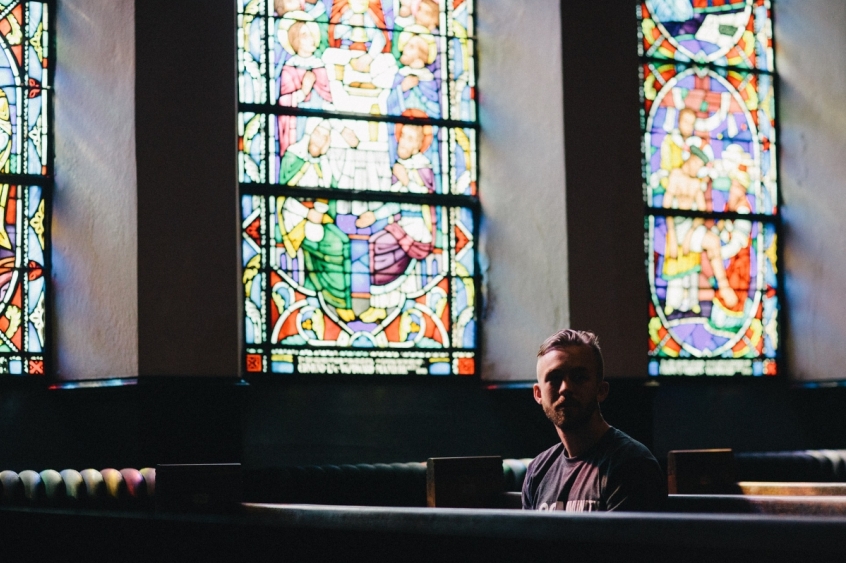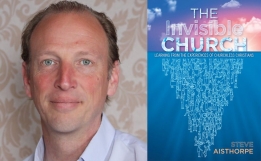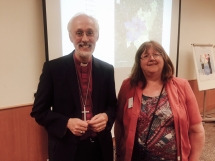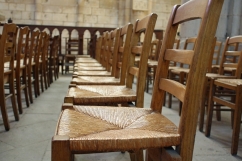
There are now more people in England and Wales who say they have no religion than say they're Christians, and the trend is upwards.
The findings come in an analysis of responses to the British Social Attitudes survey over the last few years. So far, that's interesting, but fairly easy to understand. The iconoclastic "new atheism" has made irreligion cool. Perhaps that tide will go out, but for now it means people don't have to pretend to be religious when they aren't.
Arguably, that's a good thing. It's much easier to have an honest conversation about faith when people know they aren't Christians, than when they think they are. Real churchgoing Christianity has always been a minority pursuit in England and Wales, at least for the last 200 years or so. If the notion that living in a Christian country made people Christians is now being exposed as a polite fiction, that's all to the good. (Of course that did apply in the cultural sense, but it's not the same as having a heart faith in Jesus.)
More challenging is the fact that more and more people who were brought up with a faith are leaving it. The report's author Stephen Bullivant says that leavers are "the main driver" of people saying they have no faith. In other words, it isn't that they don't know what Christianity's about. They've tried it and it hasn't worked for them.
And that's a much more interesting question which is likely to have quite a few different answers, depending among other things on which church you belong to (Baptists are much better at keeping people Christian than Methodists). There are other things that spring to mind. I'm not sure the rise of the evangelical tradition in UK Church life has been an unmitigated blessing. In its encouragement of a "decision for Christ", it makes the boundaries between faith and its absence very stark. The fuzzy edges which allow people space to belong without believing are, well, less fuzzy. And the continuing narrative of Church decline doesn't help, either: who wants to hitch their wagon to a team that's going nowhere?
Perhaps most of all, though, studies like this make us wonder about what people are finding in church that puts them off. The fact that a third of former Baptists say they have no religion and 44 per cent of former Methodists – it's 38 per cent of cradle Catholics and 41 per cent of Anglicans – means that it's not likely to be one thing, like sermons or worship styles, since these are all different.
However: somewhere along the line, a gap has opened up between these people's real concerns, beliefs and values and what they find expressed in their churches.
That's worrying, and it carries over into other areas too. Churches are not making converts in anything like the numbers they need. Some denominations are facing a massive contraction during the next few years due to a demographic time bomb (Methodists). Others are facing a longer, slower decline before they dare to hope for better days (Anglicans).
The figures don't appear to leave much room for optimism. However, while it would be wholly irresponsible to ignore them, it would be equally irresponsible to think they told the full story or that they chart an inexorable path to extinction.
For one thing, they don't take account of the green spiritual shoots that are sprouting in many parts of the country through often small-scale, under-the-radar activities. They don't take into account, either, the resourcefulness and creativity of ordinary Christians. They certainly don't take into account the work of the Holy Spirit, who is prone to upsetting all sorts of calculations. And they don't reflect the real, lived experience of Christians who are often baffled when they are told the Church is declining, because as far as they can see God is very much alive.
The Church is changing, certainly. Much that older generations have valued will go, or at least look very different in a few years. But the surprising thing in recent times has not been the decline of faith, but its resurgence. It has not died out. It is more relevant and exciting than ever.
Follow Mark Woods on Twitter: @RevMarkWoods

















